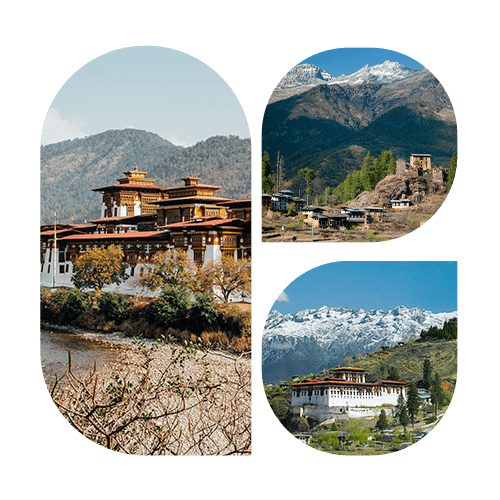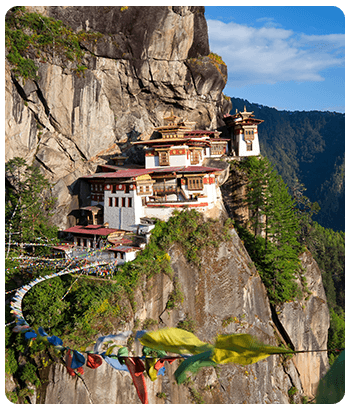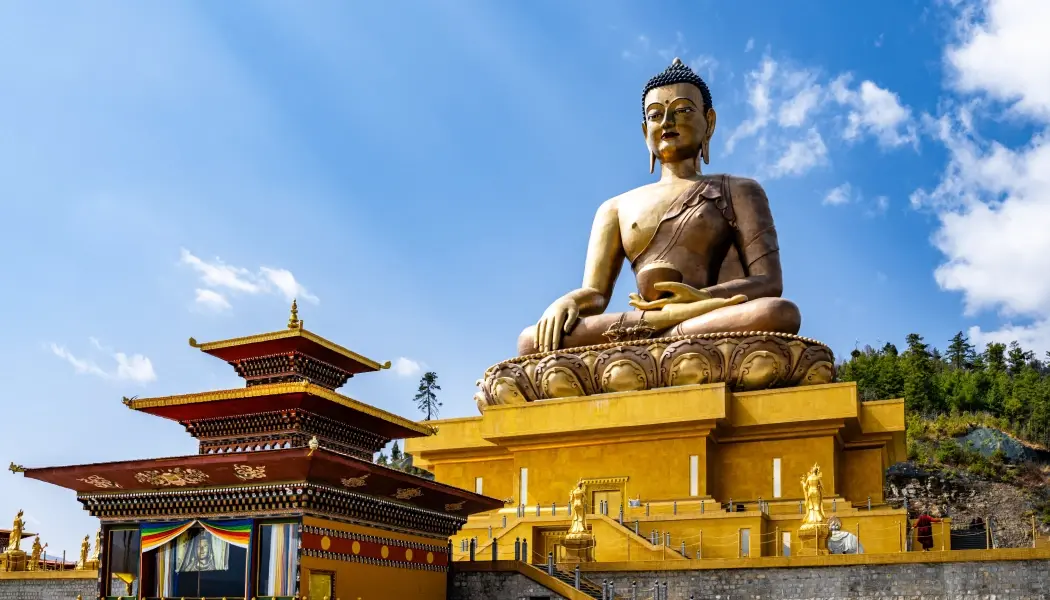

Nestled in the Eastern Himalayas, Bhutan captivates visitors with its pristine landscapes, ancient Buddhist monasteries, and unique Gross National Happiness philosophy. This carbon-negative kingdom balances tradition with sustainable development, offering travelers authentic cultural immersion through its festivals, fortresses (dzongs), and untouched natural beauty, all while carefully managing tourism to preserve its heritage.
Bhutan's high-value, low-impact tourism model preserves cultural authenticity while generating sustainable revenue through the daily visitor fee that funds free healthcare and education.
Bhutan's living heritage thrives through ornate dzongs, dramatic mask dances, colorful festivals (tshechus), and the intricate symbolism found in traditional arts and architecture.
Bhutanese cuisine features fiery chilies, cheese-based dishes like ema datshi, red rice, buckwheat noodles, and butter tea, reflecting mountain traditions and Buddhist influences.
Handwoven textiles (kira and gho), intricate woodcarvings, handmade paper products, painted thangkas, and traditional masks showcase Bhutan's exceptional craftsmanship and artistic traditions.
Vibrant seasonal tshechu festivals featuring masked dances, archery competitions using traditional bamboo bows, and folk performances displaying Bhutanese cultural heritage.
Traditional hot stone baths, meditation retreats in ancient monasteries, herbal remedies from Himalayan plants, and pristine mountain environments foster holistic wellbeing.
Mountain trekking along routes like Snowman Trek, river rafting, mountain biking through spectacular valleys, and hiking to iconic cliffside monasteries.
Modern highways connect major towns, while domestic flights serve Paro, Bumthang, and Gelephu. High-end accommodations maintain traditional architecture with contemporary amenities.

Step into a kingdom where prayer flags dance with the mountain breeze,Where majestic monasteries stand atop misty peaks with ease,Where emerald valleys echo with stories of a timeless past,And every journey fills your heart with memories that forever last.
Explore MoreThings to Do
Hike to Tiger's Nest Monastery, witness archery competitions, attend a tshechu festival, explore dzongs, and experience rural farmstays for authentic cultural immersion.
Book through registered tour operators as independent travel isn't permitted; secure visa approval before arrival and arrange mandatory daily tariff payment.
Modest clothing for temple visits, layered clothing for variable mountain weather, comfortable hiking shoes, and small gifts for local interactions.
Photography restrictions apply in temples; always walk clockwise around religious monuments; remove shoes before entering temples; and seek permission before photographing locals.
Ngultrum (BTN) is the local currency pegged to Indian Rupee; major hotels accept cards, but rural areas require cash; ATMs available in larger towns.
Licensed tour vehicles provide most transportation; domestic flights connect major regions; walking is best for exploring town centers and short trails.
Dress modestly when visiting religious sites, remove hats in temples, avoid pointing at religious objects, and refrain from public displays of affection.
Expect spicy dishes; communicate spice preferences clearly; try ema datshi (national dish); sample buckwheat specialties in central regions; and taste ara (rice wine) in rural areas.
Altitude sickness prevention is essential; drink bottled water; bring basic medications; enjoy Bhutan's remarkable safety record with minimal crime against tourists.
English is widely spoken in tourism sectors; learning basic Dzongkha greetings enhances cultural connection; mobile coverage is good in towns but limited in remote areas.
Included in the daily tariff ($200-$250/day), covering 3-star accommodations; luxury options available for supplemental fees; heritage homestays offer cultural immersion.
Most trekking and cultural activities are included in the daily tariff; specialized experiences or equipment rental may incur additional costs.
Negotiate respectfully at local markets; quality textiles command premium prices; government emporiums offer fixed prices; authenticity certificates needed for antiques.
Spring (March-May) offers rhododendron blooms and clear mountain views; fall (September-November) provides ideal trekking conditions with cultural festivals.

Where ancient dzongs echo with chants of serenity,Where emerald valleys cradle villages in timeless harmony,Where prayer flags flutter, carrying whispers of peace,And every step unveils a land where happiness never cease.


